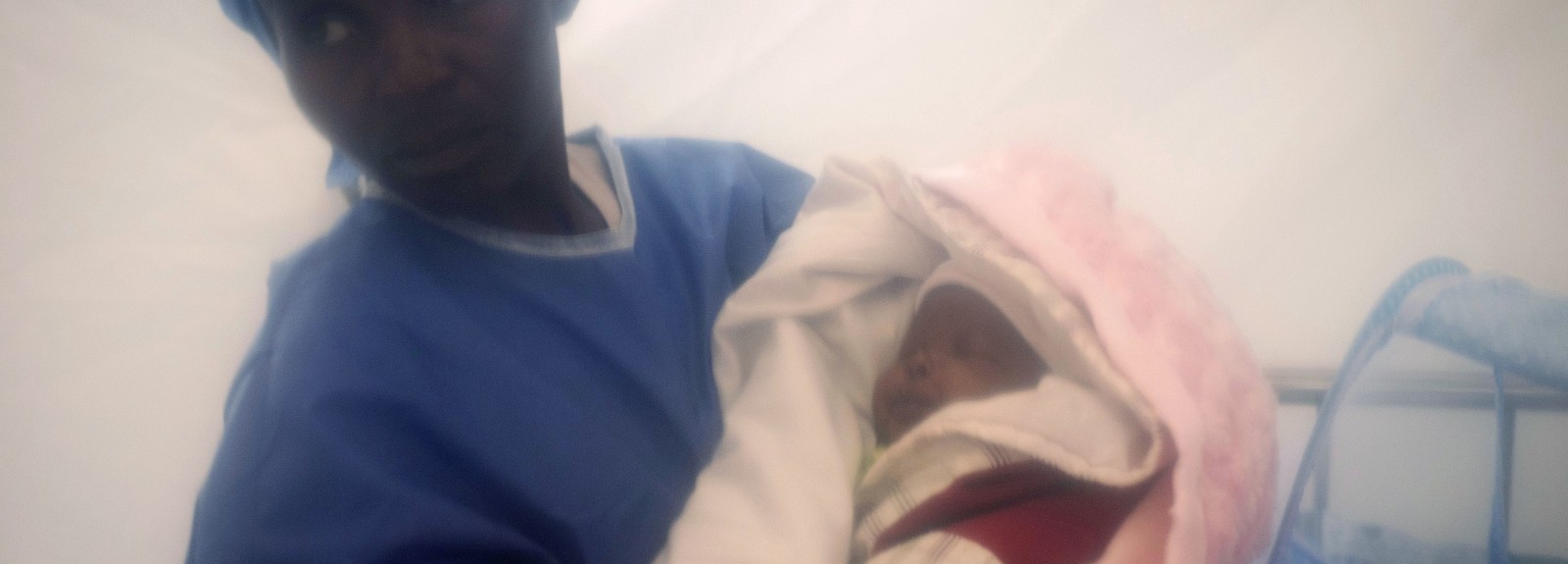For seven weeks, newborn Benedicte fought for her life. She was born in the Democratic Republic of Congo, which is experiencing one of the worst Ebola outbreaks ever. Her mother tested positive for the highly contagious disease, and died shortly after giving birth.
The survival rate for Ebola is about 50 percent. Survival rates for recent outbreaks have been as low as 10 percent.
Benedicte became critically ill at 4-days old and tested positive for Ebola. She was rushed to the nearest treatment facility, where she was hospitalized for 45 days and received a full course of the still-experimental antiviral treatment.
Shortly thereafter, Benedicte was declared cured and discharged home to her family — healthy and symptom-free. Considered a “miracle baby,” she is believed to be the youngest victim of Ebola to successfully undergo treatment and recover from the highly fatal disease.
Benedicte is now more than 6 months old. And while she survived Ebola in the first weeks of her life, she has not escaped the threat.
A growing crisis
Ebola is highly contagious and is spread through human-to-human contact. Preventing the disease from spreading takes the efforts of the entire community, including local health care systems. People need to know the symptoms of Ebola, how it spreads, and where to go for treatment. Local officials need to know who has contracted Ebola to make sure they don’t pass it on to others, and need to be prepared to treat cases when they arise. When someone passes away of Ebola, their bodies are still highly contagious, so the community must provide a dignified burial while also protecting themselves. [Source]
Even in countries with highly developed health systems, this is a tall order. But, as Rick Santos, senior advisor to Lutheran World Relief and IMA World Health points out, we are working in environments where health systems were already weak before Ebola.
“These health facilities have been underfunded for years. And so they don’t have the proper equipment and the proper processes to address cases as they come into those facilities,” he said, adding that many lacked proper water and sanitation infrastructure to prevent infections from spreading.
“So, where Ebola has broken out, the health systems there have been weak. A weak health system doesn’t necessarily mean you’re going to get something like Ebola, but it definitely creates the conditions for it to really rise and to break out,” he said.
Give a child a fighting chance against Ebola
For every Benedicte, there are so many more children at risk of Ebola. And right now, you have the opportunity to do TWICE as much to help them. Thanks to some generous donors, your gifts through July 24, 2019 will be matched – dollar for dollar, up to $167,667!
You’ll reach children, like Benedicte, and their families, working side-by-side with them to rapidly treat and prevent the spread of Ebola.
With our partner, IMA World Health, we are working in the epicenter of the outbreak providing health care facilities with lifesaving protection supplies like soap, gloves, gowns, masks and covered mattresses to curtail the spread of the virus.
And we are working closely with the World Health Organization to identify and isolate infected individuals to provide treatment and stop the disease from spreading. Should it begin to spread, Lutheran World Relief and IMA are preparing to mount a rapid response in Uganda to protect vulnerable families.
Please give as generously as you can while your gift can make twice the impact.


